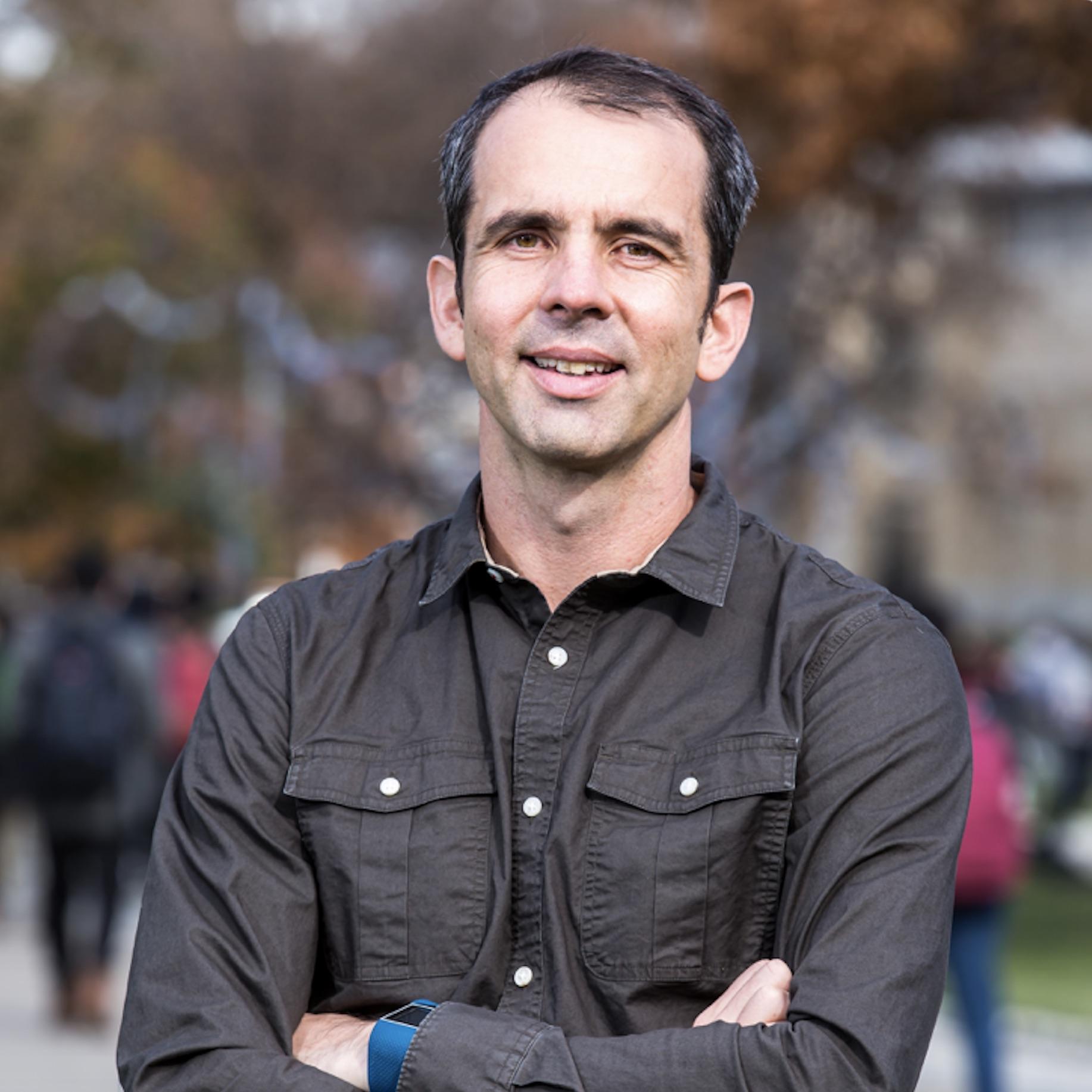Prof Simon Lucey brings academic brilliance plus industry know-how as incoming AIML Co-Director

Professor Simon Lucey, AIML Co-Director
Story written by Dr Sarah Keenihan, AIML
You might not have heard of Pittsburgh, USA, but AIML Co-Director Professor Simon Lucey says it has a lot in common with his new home city of Adelaide.
Professor Lucey joined AIML at University of Adelaide in October 2020, lured from Pittsburgh where he was Associate Professor at Carnegie Mellon University’s Robotics Institute and Principal Scientist at Argo AI, a company that builds technology for self-driving cars.
“Adelaide is in the enviable position of being perfectly placed to grow and economically develop its standing as a world leader in machine learning and artificial intelligence expertise, just as Pittsburgh has done over recent years,” said Professor Lucey.
“What’s critical here is to get a density or critical mass of people working on the same problem, in one place.”
“We have the opportunity to make this happen in Adelaide, with the Australian Institute for Machine Learning already established as a world leader, the AU$20 million Centre for Augmented Reasoning opening in early 2021, plus the innovation and entrepreneurship hub including Australia’s Space Agency next door at Lot Fourteen,” Professor Lucey said.
“The Institute is a partnership between the State Government of SA and the University of Adelaide. As a result of the State Government support, we are working with numerous South Australian SMEs to develop world class products that are based on AI. This will only increase the capability of South Australia in AI.”
“It’s like a snowball effect – once you’ve got the ball formed, you can start building on it,” said Professor Lucey.
Originally from Queensland and formerly a research scientist at CSIRO (2009-2014), Professor Lucey’s expertise includes Computer Vision, Machine Learning, Robotics and Artificial Intelligence.
While in Pittsburgh, Professor Lucey helped set up a new Research Center (sic) in Autonomous Vehicles at Carnegie Mellon, and has commercialised his research for a variety of applications such as technology for virtual try-on of glasses, and AI for perfecting your 3-point basketball shot. His research in the USA was funded by the National Science Foundation (the big science agency in America), as well as technology brands Facebook, Disney, Apple, Samsung, Adobe and Bosch.
“Throughout my career in computer science, I’ve chosen to go to places with top talent, where the people are great,” said Professor Lucey.
“That’s where there’s excitement, that’s where there’s job performance, that’s where there’s opportunity.”
As well as Carnegie Mellon and the self-driving car company Argo AI, technology high performers Google, Uber, Apple, Microsoft, and Amazon also have offices in Pittsburgh.
“If we get the mix right, this is what the future of Adelaide could look like – a hub of technology growth and development, a place that attracts all the big names because they know this is where world class talent is located,” said Professor Lucey.
The Australian Institute for Machine Learning is a global leader in machine learning and AI, and ranked #4 in the world for computer vision expertise. Professor Lucey joins Professor Anton Van Den Hengel as Co-Director.
“Professor Lucey embodies the new model for academics in AI where they hold positions in industry and academia at the same time. This model has become standard in the US and Europe, because both industry and academia benefit,” said Professor Van Den Hengel.
“In Professor Lucey’s case he has been working for a driverless car company while an academic at one of the best universities in the world. He brings a wealth of experience to Adelaide, from both environments.”
Professor Lucey will present a University of Adelaide Professorial Lecture in late 2020/early 2021 (final date to be re-scheduled due to COVID restrictions), where he will argue the case that investment and research targeting a type of machine learning known as Deep Neural Networks are essential for Australia’s future economic, societal, and environmental future.
